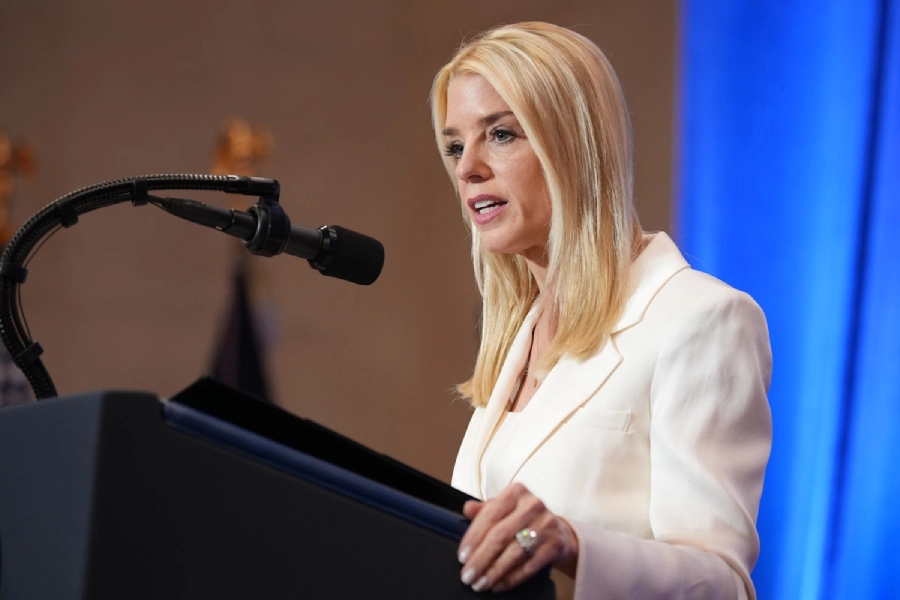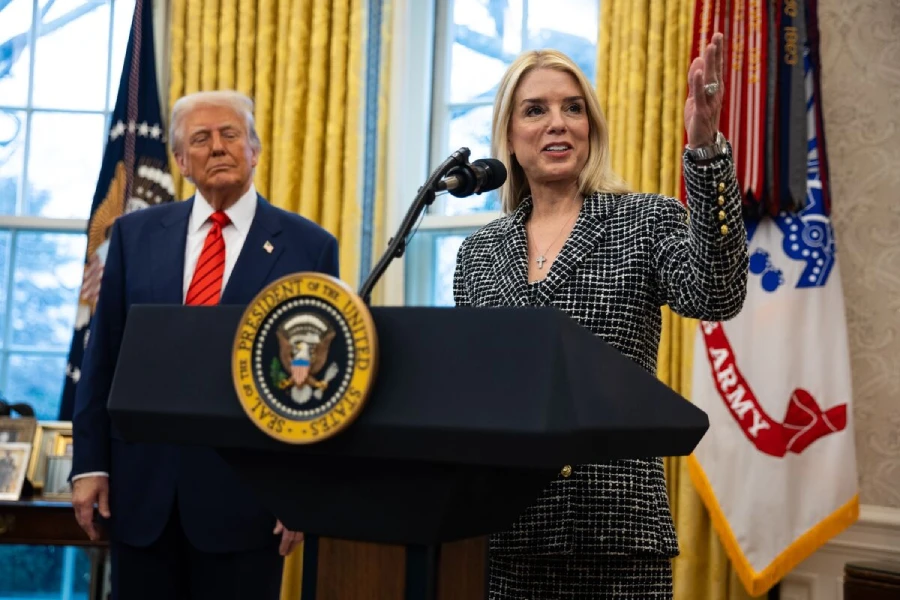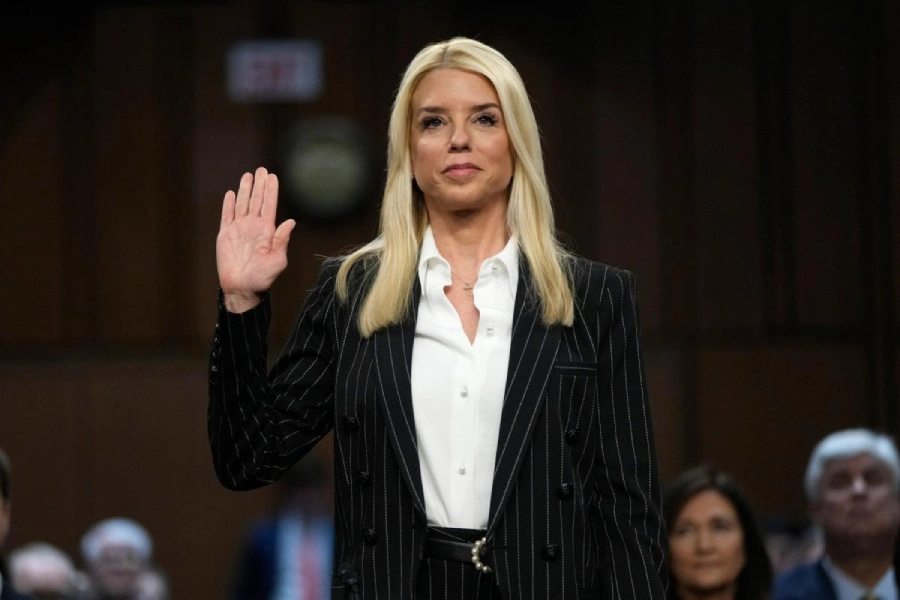In a bold move that has sparked widespread debate, U.S. Attorney General Pam Bondi recently confirmed that the Department of Justice (DOJ) will continue its break from the American Bar Association (ABA) in the judicial nomination process. This decision, reaffirmed during her latest congressional testimony, highlights ongoing concerns about fairness, political bias, and transparency in federal judicial evaluations. Bondi’s actions underscore her growing influence in shaping the U.S. legal system and raise questions about the future of judicial oversight.

The DOJ and ABA Split: Historical Context
For over six decades, the ABA has been a trusted partner in reviewing and rating judicial nominees, a tradition dating back to President Dwight D. Eisenhower’s administration. The ABA’s evaluations once carried considerable weight in Senate confirmations, often influencing outcomes with their “Qualified” or “Not Qualified” ratings.
However, Bondi argues that the ABA has deviated from neutrality, favoring Democratic nominees and introducing ideological bias into what should be an impartial process. Her decision to end DOJ cooperation, first announced in [year of original announcement], has now been reaffirmed, signaling a permanent shift in judicial vetting procedures.
Bondi’s Position on ABA Bias
Pam Bondi contends that the ABA’s review process is no longer objective. She points to the organization’s alleged left-leaning tendencies, particularly in rating conservative nominees more harshly than equally qualified liberal candidates. According to Bondi, removing the ABA from the process restores a merit-based, nonpartisan evaluation system.
Under this updated approach, nominees no longer complete ABA questionnaires or disclose confidential information. Supporters argue this streamlines the nomination process and prevents ideological interference in judicial selections.
Political Implications and Congressional Testimony
The timing of Bondi’s reaffirmation is politically significant. Former President Donald Trump has recently submitted new judicial nominees, many of whom previously worked within the DOJ or represented Trump in legal matters. Critics argue that sidelining the ABA eliminates an important layer of scrutiny, potentially allowing politically aligned nominees to advance with less oversight.
During her latest hearing, Bondi emphasized fairness, transparency, and accountability, framing the decision as a safeguard against partisanship. Republican senators, including Mike Lee, have praised the move as a correction to years of perceived ABA bias.
Handling Epstein Files and Federal Oversight
Bondi’s congressional testimony also addressed her handling of sensitive documents related to Jeffrey Epstein. Critics have questioned delays in releasing certain files, but Bondi stressed that all actions were compliant with federal regulations and aimed at protecting due process. The discussion over Epstein-related materials underscores the broader challenge of maintaining transparency while safeguarding confidential information.

Reactions from the Legal Community
The legal community remains divided. Some experts view Bondi’s update as a positive step toward impartiality, ensuring judicial nominees are evaluated strictly on professional qualifications. Others worry that removing third-party oversight could reduce accountability and allow political considerations to dominate lifetime judicial appointments.
Bondi’s supporters counter that the DOJ and Senate Judiciary Committee are fully capable of independently vetting candidates, ensuring a fair and rigorous process.
What This Means for Future Judicial Nominations
Moving forward, judicial nominees will be reviewed exclusively by the DOJ and Senate Judiciary Committee, without ABA involvement. Public ratings by the ABA may continue, but they will no longer carry privileged influence. This could accelerate confirmations, particularly for conservative nominees who previously faced harsher scrutiny.
Bondi has framed the update as a critical step in ensuring fairness, transparency, and integrity in judicial appointments, potentially shaping the federal judiciary for years to come.
Pam Bondi’s Rising Influence
This reaffirmed decision cements Pam Bondi’s role as a significant figure in conservative legal circles. By challenging long-standing norms, she positions herself as a reform-minded leader willing to confront perceived partisanship in federal judicial processes. Whether this will enhance her legacy or invite sustained criticism remains to be seen, but her impact on the nomination process is undeniable.
Conclusion
Pam Bondi’s updated approach to DOJ-ABA relations marks a decisive shift in federal judicial oversight. By maintaining the DOJ’s independence from the ABA, Bondi emphasizes fairness, transparency, and merit-based evaluations. While opinions differ on the long-term implications, her actions have reshaped the dynamics of judicial nominations and ensured that the process remains a central issue in U.S. legal and political debates.
FAQ
1. Why did Pam Bondi reaffirm the DOJ’s break with the ABA?
She cited concerns about ideological bias favoring Democratic nominees.
2. What role does the ABA historically play in judicial nominations?
It reviews and rates nominees prior to Senate confirmation.
3. Is the ABA officially excluded now?
Yes. The DOJ and Senate Judiciary Committee handle vetting independently.
4. Did Trump support ending ABA involvement?
Yes. His administration had previously limited ABA influence.
5. Has this occurred before in U.S. history?
Yes. Presidents George W. Bush and Donald Trump restricted ABA access in prior administrations.
6. Can the ABA still issue public ratings?
Yes, but these ratings have no special authority in the nomination process.
7. How does this impact judicial nominations?
It could streamline confirmations, particularly for conservative nominees.
8. What criticisms does the ABA face?
Republicans argue the association evaluates candidates based on ideology rather than legal merit.
9. What reasons does Bondi give for this update?
She emphasizes fairness, transparency, and reducing partisan influence.
10. Will this change the future of the U.S. judiciary?
Potentially, by shaping the ideological balance of federal judges for years.

